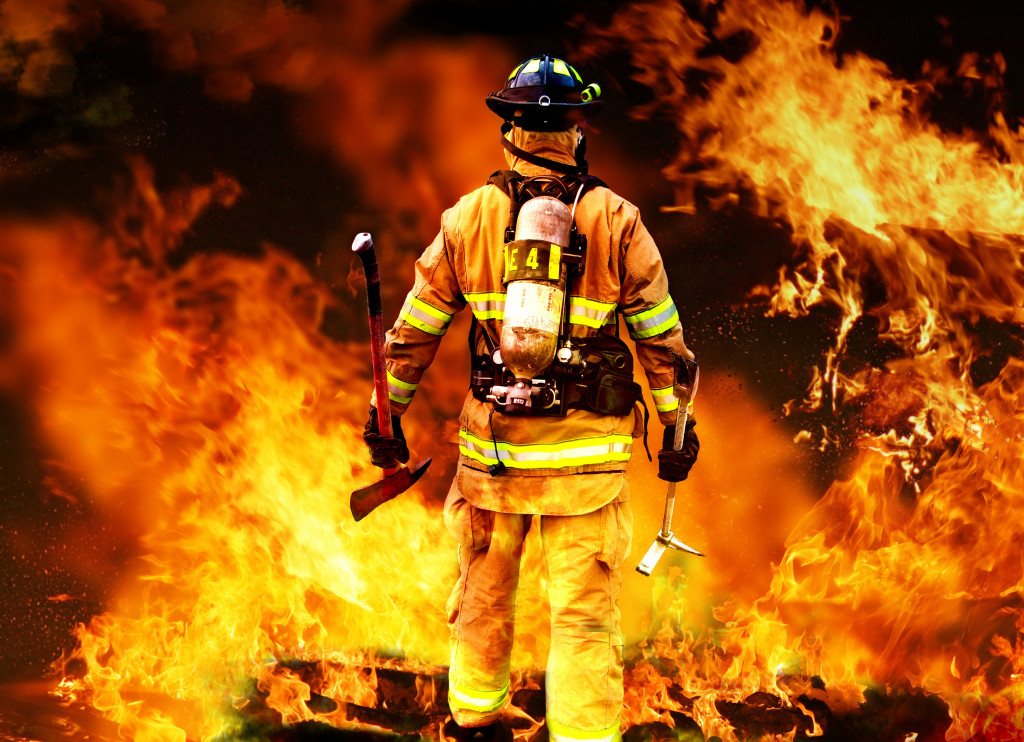Disasters can happen anywhere and at any time. A natural disaster, such as a tornado or hurricane, can devastate an entire town in minutes. A man-made disaster, such as a terrorist attack or a chemical spill, can cause long-term damage to the environment and people’s health.
The last five years saw nearly 18 billion-dollar disasters or disasters exceeding one billion dollars in damages occurring in the country. These disasters resulted in over 900 fatalities yearly and over $157 billion in damages.
Disasters can also affect people’s homes. A home damaged by a tornado or hurricane may not be able to be repaired. If it is contaminated by chemicals, it may have to be demolished.
You can do things to help protect your home from disasters. Here are some tips:
Have a disaster preparedness plan.
Emergency or disaster preparedness planning is vital for every family. A good plan will help you know what to do in an emergency, where to go, and how to communicate with loved ones. It will also help reduce the anxiety and stress of being unprepared.
Make sure your plan is specific to your needs and situation. Consider evacuation routes, safe places to go, and how to contact loved ones. Many resources are available to help you create a plan, including the American Red Cross and FEMA.
Be sure to practice your plan regularly. This will help ensure everyone knows what to do and is comfortable with the plan. It will also help identify any weaknesses in the plan so they can be corrected.
Have an emergency kit.
An emergency kit is a collection of supplies you may need during a disaster. It should include food, water, first-aid supplies, and clothing. You may also consider adding cash, important documents, and medications.
Your kit should be tailored to your specific needs, but there are some general items that every kit should include.
Be sure to update your emergency kit regularly. This will help ensure you have the supplies you need in an emergency.

Install a smoke detector and carbon monoxide detector.
There has been a downtrend in the number of fires over the past few years. But fires are still a significant threat to homes. A working smoke detector can alert you to a fire in your home and give you critical time to escape. Check the batteries in your detectors monthly, and replace them as needed.
Aside from a detector, you can also look for a reputable company offering reliable fire damper testing services. The mechanism is a fire protection product that prevents fire from spreading on your property.
Carbon monoxide is an odorless, colorless gas that can be deadly. Since it’s challenging for a human to detect the presence of carbon monoxide in a home, you should consider getting a carbon monoxide detector. A carbon monoxide detector can alert you to high levels of this gas in your home, giving you time to ventilate the area and get to safety.
Build or buy a safe room or shelter.
A safe room or shelter is essential to any home, as it can protect from natural disasters and other emergencies. It is crucial to have a safe space or shelter to which you can retreat in the event of a disaster if you live in an area prone to severe weather or other emergencies.
A safe room or shelter can be either a stand-alone structure or an addition to your home. It should be built to withstand high winds and extreme weather conditions. In addition, it should be equipped with food, water, and medical supplies, so that you can stay safe and comfortable in the event of a disaster.
Trim trees and branches that may fall on your home during a storm.
Climate Prediction Center forecasters at NOAA’s National Weather Service predicted an above-average hurricane season this year. It will be the seventh year the country will experience an above-average hurricane season. There is a 65 percent chance that the country will experience an above-normal weather season and a 25 percent chance of a near-normal season. NOAA’s outlook also predicts a 10 percent chance of a below-normal season for the year.
With these predictions, you should prepare for the hurricane season by trimming trees and branches that may fall on your home during a storm. You should also secure any outdoor furniture or decorations that could become projectiles in high winds.
Another way to prepare for the hurricane season is to create an emergency kit with food, water, and first-aid supplies. You should also plan how you and your family communicate if you are separated during a storm.
Disasters can happen anytime, so it is crucial to be prepared. Following the tips in this article is an excellent start to protecting your home from disasters. However, you should always check with local authorities and organizations for specific recommendations.

